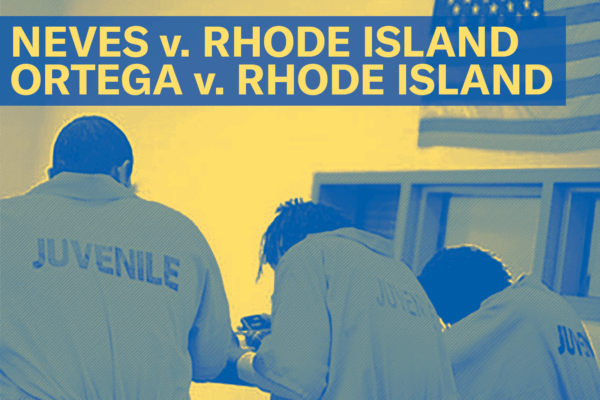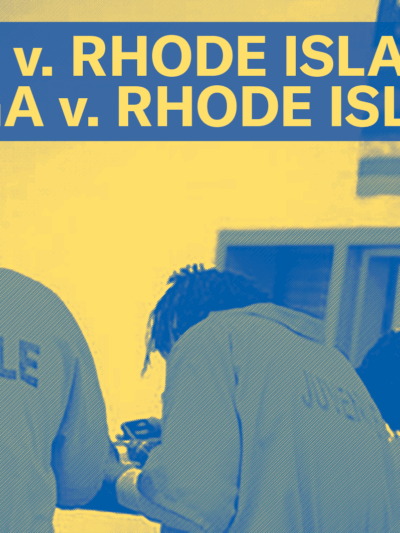Monteiro v. Rhode Island
- Filed: February 24, 2023
- Status: Victory!
- Court: Rhode Island Supreme Court
- Latest Update: Feb 24, 2023

Related News & Podcasts
Feb 24, 2023

ACLU Challenges State's "Absurd" Position that "Mario's Law," Allowing for Early Release of Juvenile Offenders, Doesn't Apply to Mario
ACLU of Rhode Island cooperating attorneys have today filed a petition in R.I. Superior Court to challenge the state’s “absurd” position that an important criminal justice reform enacted by the General Assembly in 2021 doesn’t apply to the person the law was overtly aimed to help.
Mar 24, 2022

ACLU Charges State with Undermining Law Designed to Reduce the Incarceration of Juvenile Offenders
The State’s argument, taken to its logical conclusion, would be that the Youthful Offender Act is not applicable—at all—to any person sentenced on multiple offenses, even those running concurrently, since that person has not been convicted of “an” offense.
May 27, 2015

A Lifelong Punishment: Juvenile Life Without Parole
UPDATE 6/10/2015: Call the leaders of the House and Senate and the chairs of the Judiciary committees to ask them to support legislation banning life without parole sentences for children in Rhode Island.
Jul 02, 2024

RI Supreme Court Orders Parole Board to Consider Release of Mario Monteiro in Response to ACLU of RI Lawsuit
In a major victory for criminal justice reform and the rights of youthful offenders, the Rhode Island Supreme Court today ruled that Mario Monteiro and other similarly situated teenagers and young adults are eligible for parole consideration for release to the community after serving twenty years.
Stay Informed
Sign up to be the first to hear about how to take action.
By completing this form, I agree to receive occasional emails per the terms of the ACLU’s privacy statement.
By completing this form, I agree to receive occasional emails per the terms of the ACLU’s privacy statement.


